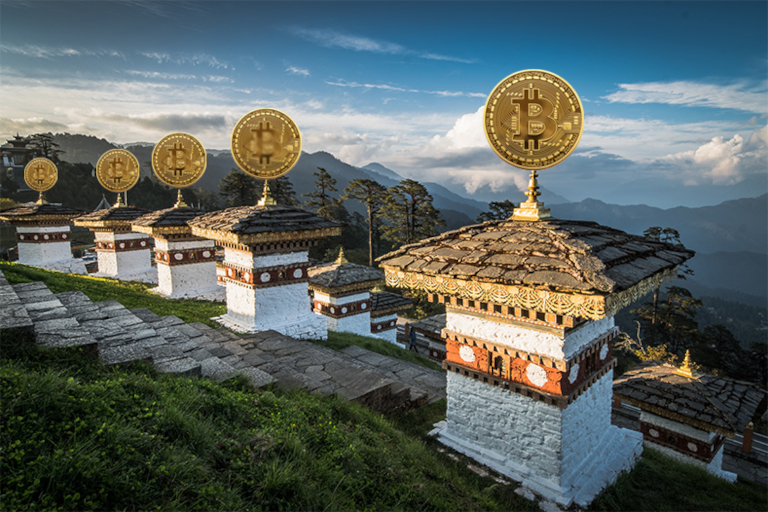In a recent episode of “Crazy Town,” hosts Rob Dietz, Jason Bradford, and Asher Miller delved into the unexpected trajectory of Bhutan, a nation once celebrated for its commitment to Gross National Happiness (GNH)—a concept emphasizing the well-being of citizens over mere economic output. This Himalayan kingdom, which had previously garnered attention for its sustainability efforts and cultural preservation, is now reported to have accrued significant Bitcoin reserves through government-led mining initiatives.
Discussion unfolded as hosts reflected on their personal connections to Bhutan, including a shared anecdote involving Dietz’s friendship with a Bhutanese national named Sonam, who underscored Bhutan’s unique approach to balancing tourism and cultural identity. Bhutan limited tourist access to maintain its cultural integrity, an approach celebrated by many as a model for sustainable development.
However, the conversation took a sharp turn upon discovering that Bhutan is now mining Bitcoin—an energy-intensive venture—using its abundant hydropower resources. This shift has allowed the government to fund substantial pay raises for civil servants, but it has raised critical environmental concerns. The hosts questioned the implications of diverting energy from traditional exports to cryptocurrency mining, suggesting it could lead to increased reliance on fossil fuels for neighboring countries, particularly India.
The episode highlighted the irony of Bhutan, a nation once viewed as a beacon of sustainable development, now participating in practices seen as emblematic of late-stage capitalism. With the lure of quick profits through Bitcoin, there is a sense of disillusionment lingering within the discussion, as hosts lamented the loss of Bhutan’s idealism.
Amidst the banter, they touched on broader themes of sustainability and collective responsibility, critiquing not only Bhutan’s new direction but also the hypocrisy present within wealthier nations, including their own. The United States’ consumption patterns and reliance on debt were juxtaposed against Bhutan’s earlier ethos of GNH, provoking self-reflection on the values many societies prioritize.
As the conversation progressed, hosts contemplated the potential avenues for change. They discussed the emergence of networks promoting well-being economies globally, suggesting that—despite Bhutan’s shift—there remains a path to promoting more humane economic models without institutional mandates.
Ultimately, the episode concluded with a call to action, emphasizing that individual and collective choices can still drive societal priorities away from harmful practices and toward more sustainable futures. The hosts encouraged listeners to engage in meaningful conversations and actions to advance these ideals.







